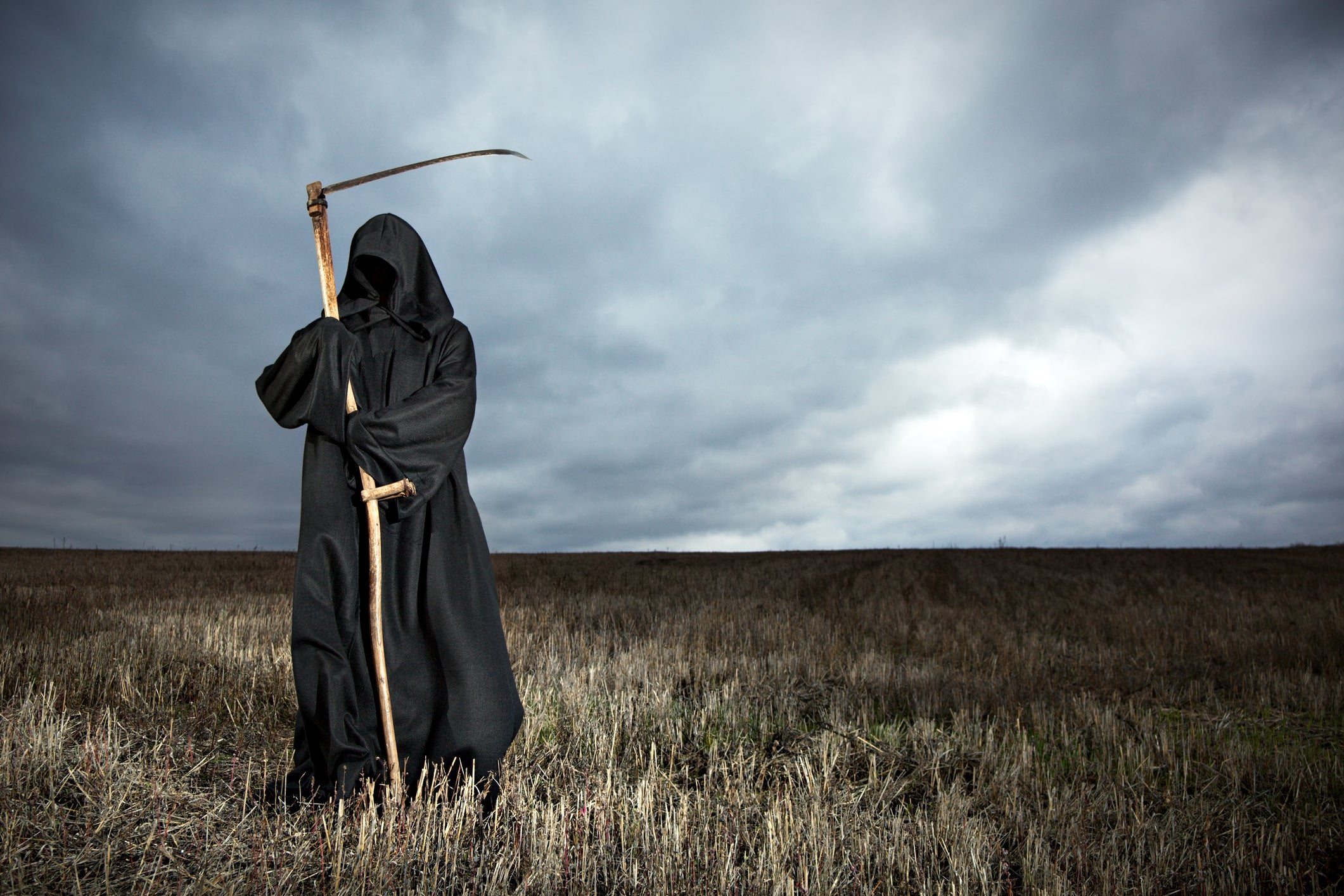One in three people have seriously wished death on someone, poll finds
Almost one in 10 Britons think about death every day, according to the major new study by YouGov,

Your support helps us to tell the story
From reproductive rights to climate change to Big Tech, The Independent is on the ground when the story is developing. Whether it's investigating the financials of Elon Musk's pro-Trump PAC or producing our latest documentary, 'The A Word', which shines a light on the American women fighting for reproductive rights, we know how important it is to parse out the facts from the messaging.
At such a critical moment in US history, we need reporters on the ground. Your donation allows us to keep sending journalists to speak to both sides of the story.
The Independent is trusted by Americans across the entire political spectrum. And unlike many other quality news outlets, we choose not to lock Americans out of our reporting and analysis with paywalls. We believe quality journalism should be available to everyone, paid for by those who can afford it.
Your support makes all the difference.One third of Britons have seriously wished death on someone, with three quarters stating that they do not regret it, according to a new study.
The new poll from YouGov of more than 2,000 people forms part of an extensive survey about death, which includes fears around dying, willingness to talk about death, and belief in an afterlife.
Of those who had wished death on others, more men than women reported doing so; participants were not asked why they wished someone dead.
Almost one in 10 Britons think about death - either their own or more generally - every day with a further 20 per cent thinking about it several times a week. Only four per cent of those polled said they never think about it.
When it comes to a fear of dying, 41 per cent said they were afraid, while 43 per cent said they were not.
Men over 60 were least afraid of dying, while young women were most fearful. And those who had religious beliefs were only partially less likely to be fearful than non-religious people - 51 per cent compared with 42 per cent.
Beliefs about life after death were mixed, with most of those polled believing that a soul goes to heaven or lives on in some way (43 per cent).
Sixteen per cent believe in reincarnation, while six per cent think they will become a spirit. Over half (54 per cent) of participants do not believe in heaven or hell, but 10 per cent of non-religious people said they do.
Despite almost 160,000 people dying in the UK of Covid-19 to date, the majority (69 per cent) of those polled insisted that it has had no impact on their perception of death.
Elsewhere, a Louisiana nun has used the pandemic to conduct a series of online classes designed to explore historical representations of death and think about their own.
Since 2017, sister Theresa Aletheia has made it her aim to revive the practice of memento mori, a Latin phrase meaning “Remember your death” as a means of appreciating the present and focusing on the future.
Rather than finding the subject morbid, Aletheia declares that suffering and death are facts of life, and that focusing only on the “bright and shiny” is superficial and inauthentic.
“We try to suppress the thought of death, or escape it, or run away from it because we think that’s where we’ll find happiness,” she says. “But it’s actually in facing the darkest realities of life that we find light in them.”
Join our commenting forum
Join thought-provoking conversations, follow other Independent readers and see their replies
Comments